When you are physically injured you might be struggling mentally as well. Because the injury stops you doing what you love most, you might experience a mix of thoughts and emotions. The psychological effects of a sports injury are similar to the emotional process of grief when you’ve lost a beloved one:
- DENIAL: This is not happening to me!
- ANGER: This is unfair! Why me? If only, I hadn’t..…
- DEPRESSED MOOD This takes too long! I feel useless like this.
- ACCEPTANCE: OK, I know now what I should and shouldn’t do and if I stick to the plan, I will recover!
There is no set time frame for this “grieving process”, as it is very personal how someone handles this mental struggle when physically injured. It is normal to fluctuate between the different emotions. Today you might be feeling happy with the small steps forward towards recovery, whilst the following day you might be annoyed and pessimistic because it’s all taking so long.
Experiencing these emotions can sometimes be so intense that it could stop us from doing the “right” thing, which can change the situation from bad to worse! Therefor it’s important to find coping mechanisms.
Injury denial

Have you ever felt some annoying and recurring pains which you tried to ignore and continue your training schedule? Many athletes like to believe (hope) that this pain will go away by itself. They simply do not want to accept that maybe there is something wrong more seriously.
Although some pains do go away by themselves, it is important to listen to your body. Don’t stay in the denial stage for too long, as things might end up worse. If you continue to train to the point where you’ve turned a “small pain” into a serious injury, then you are miles away from recovery.
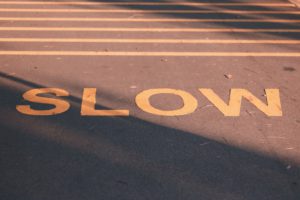
It is OK to try out if it’s enough to reduce the intensity of your training a bit. You could slow down your pace, take some extra rest or go for a shorter run. But is this training adjustment is not showing any signs of improvement of the complaints, it’s probably best to get professional advice as quickly as possible. Seek medical assistance to have your pains examined. Find out which injury you’re suffering from and what caused it. Ask for advice on the “do’s and don’ts” and how to adjust your training in such way that you can still do some (or at least the right) exercises while your injury recovers. He/she will be able to set your expectations right on your recovery.
Angry and frustrated
Discovering the seriousness of your injury and the time it will need to recover can leave you with anger and frustration. As soon as you find out that there is no quick fix, you might even blame yourself: “If only hadn’t done such or so…this all wouldn’t have happened”. It all feels so unfair that this is happening to you. Especially if you need to cancel specific races or events that you have trained for so hard.
Being angry in this situation is absolutely normal, as long as you don’t stay in this modus too long. Anger easily gets in the way of your recovery. Don’t be too hard on yourself. We all make mistakes. Or maybe it wasn’t even your own mistake, but was there an accidental situation why you shouldn’t blame yourself at all.

“Give yourself a break!” This doesn’t mean you shouldn’t do anything anymore. Your exercises and daily activities just need the right adjustments. Reduce movements that affect your injury. Lower the distance or the speed that you normally run at. Or find a temporarily alternative cardio training for running: maybe cycling, swimming or just walking.
Not only is staying active good to keep a certain level of fitness, it also helps you to cope better with your frustrations of not being able to do what you love. Part from the cardio alternatives, work on your core strength and other muscles that are involved in running as well. Find out what you CAN do instead of focusing on what you can’t right now.
Pessimistic Mood

Sometimes you may lose some faith in your own body. It is so depressing when your body is taking it’s time and it feels as if the injury will never recover. It makes you sad and frustrated at the same time.
That’s why it is so important to ask your physiotherapist or medical specialist to explain to you what he considers to be “normal recovery” given your situation. It is good to have realistic expectations on the recovery process and duration, even though this can be very confronting. Try not to force things and keep calm: (eventually) your injury will heal, as long as you give it the chance to do so.
Acceptance
Once you have accepted the situation and have the expectations on your physical injury clear, you’re mentally on the right track! You’ll realise that you WILL get back to a fully recovered and healthy situation.
Yes, you will get back to running if you stay disciplined and do what you should do. And you will absolutely get back to the same running speed and distance that you were used to, as long as you stick to your recovery plan.
Patience is key here! Don’t let your body fool you. When the pain seems gone, this doesn’t always mean that you are fully recovered. Don’t rush the last bits of your recovery process. It is the most common mistake that recovering patients make: they go back their old running routines often too early. A decent rehab should increase the training intensity only step by step!
Lack of discipline and patience delays the recovery!

I must admit that I probably made “all mistakes an injured person can make” during my own recovery process! And that’s the main reason why it took me much longer than it should.
First of all I didn’t reach out to medical help early enough and in the beginning I also denied the seriousness of my injury. Although I had been (on-and-off) suffering from heel pains for a few weeks already, I thought that with some Ibuprofen and some extra rest, things would go away by itself. And yes, the pain decreased a bit and as soon as I thought that running was doable again, I continued my training again. Meanwhile, I tried to neglect the recurring pain. And so the pains returned and became more severe. Until, after a few months of “try and error”, I reached the point of being constantly in pain all day long. On top of that I only made things worse by showing my 8 years old daughter and her friends how to jump ropes. I was on bare feet and on a tiled floor and I failed trying not to land on my painful heel…. and so that was just the last bit to smash me down completely! I was in so much pain. Ibuprofen and rest didn’t do the job anymore. I needed professional help.
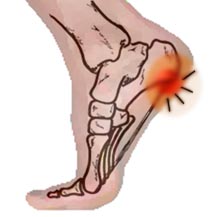
I finally booked a flight abroad to see a podiatrist who diagnosed me with severe plantar fasciitis. He made orthotics for me and advised me to buy new runners with better arch support. I needed to wear closed, supportive shoes most of the day. Walking barefoot or on flip-flops was simply too painful anyway. High heels were out of the question. He also referred me to a physiotherapist for a personal treatment plan. Unfortunately I had no access to a physiotherapist in the country that I lived in and so I just tried “some things” myself…. Some worked, some didn’t. My recovery has had it’s ups and downs. Later in the process I found out that not only had I developed a severe plantar fasciitis, I also had heel bone fracture.
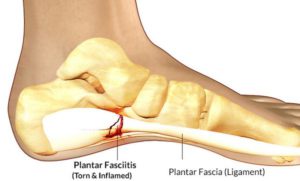
One thing I’ve learned: I have become an expert in NOT listening well enough to my body and overdoing things when my body wasn’t ready for it yet. Lack of discipline of doing the (sometimes boring) right exercises….and being impatient and trying to go for a run too soon! How often did I think the foot felt good (enough) again and so I thought it was OK to try a run? I was not helping myself in my recovery, I actually reversed all progress I made before. Anger, frustration, pessimistic moods: I’ve felt them all. One day I was doing my mat exercises in the gym and I got so frustrated and full of self-pity, that I simply started crying why my body wouldn’t heal (faster)? Until I really realised that this was leading to nowhere. I had to accept that the injury was really serious and I needed professional help and a personal recovery plan. And stick to it! It took me more than a year to get back to short and easy “walk & jog” training sessions. Only recently I can say: “I have recovered!”.
Don’t get re-injured!
All we want is being able to do what we like most i.e. running without pains or injuries. Therefor it’s important to listen more careful to your body. We will probably not stay injury free for the rest of our lives, but we can do our best, right? The following tips might be helpful to prevent re-injuring yourself:
- Wear the right supportive shoes and if needed extra insoles.
- Maintain a healthy weight to avoid additional strains. Eat well!
- Don’t “just run only”. Add strengthening and flexibility exercises to your training schedule.
- Do a proper warm up and cool down.
- Take good care of your body and mind: have a massage and schedule a pedicure for regular feet maintenance.

- Give yourself a break! Do not over-do your exercises. Muscles, tendons, bones and ligaments need enough time to recover after each training.
- Listen to your body! Don’t ignore serious pains too long and look for medical advice.
- Follow the rehab program carefully and be patient: You will run again!
Hopefully this article gave you more insights on the psychological effects of a sports injury. There are quite a few books on sports psychology to be found online if you would like to read more about it.
I hope this article was useful to you. Please share if you know someone that is struggling with an injury right now. If you have any questions, feel free to send me an e-mail at an*******@mo*********.com or leave a comment below and I will get back to you.




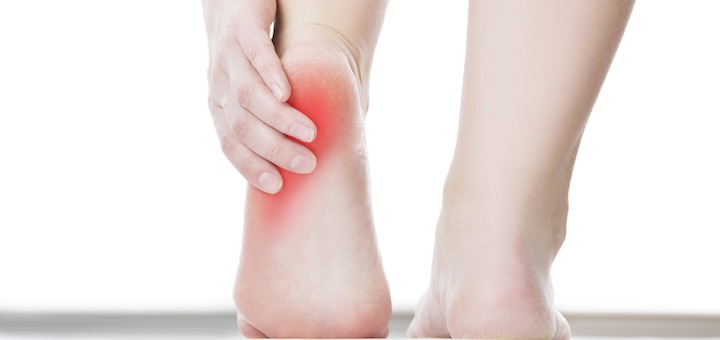
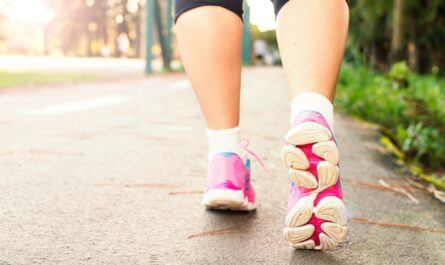
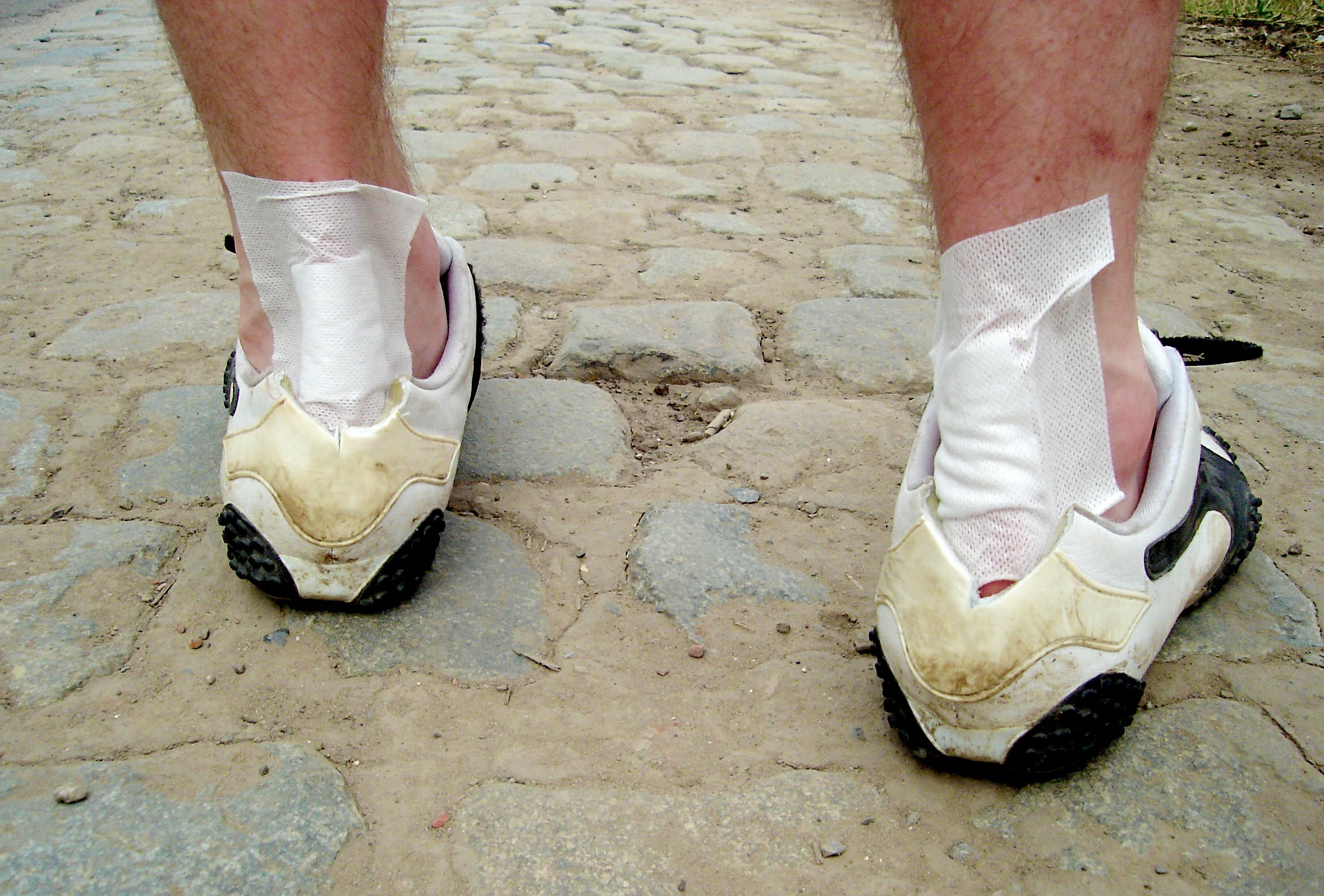
Hi,
it’s incredible how many effects coming with a “simple” injury. Never considered about that deep..
Thanks for your informative article.
Hope I’ll never get injured 🙂
Best,
George
Thanks for sharing your experience with a sports injury. I have been through a couple of them myself. Even though I’m healed, the pain or discomfort can come back from time to time, especially if I overdo the training. The mental process of dealing with the injury, on the other hand, became easy for me as I have learned to listen to my body. Emotions can be hard to control in those moments of pain, but control comes with practice.
I remember listening to Kobe Bryant how he learned to ignore the injury on the mental level. He said that he never accepted the injury in his mind. He trusted his doctors and recovery process while keeping his mind occupied with his game. In other words, he has mastered the principle, mind over the matter, which ultimately resulted in fast recovery and improvement of his game.
Thanks for your comment and sharing the information on Kobe Bryant. I will definitely look him up!
Oh boy does this ring true… I do strength training with barbells and I’ve pulled my lower back, oh I don’t know, 20 times? Also have had overuse injuries and strains in my hip, knees and shoulder. Almost every time I get a bigger injury I can only blame myself. When I look back I can see that the injured part has been feeling off or even painful for several week before hand. I am also guilty of pushing through the pain and finally giving up after several weeks when the pain limits me from training all together. All this has made me more careful to listen to my body but this kinda stuff happens when you try to push your limits. Nothing makes me more angry and depressed than feeling the slight tweak in my back after several weeks of consistent progress because I know the recovery will set me back where I started from. So as I’ve gotten older I’m focusing more on health and program a light week every three weeks or so in an attempt to minimize injuries. Thanks for the read!
Hi Jukka, Thanks for your comment. I can totally feel you! No pain, no gain, right?
I used to pushing myself to the limits too…and over the limits. But as I am getting older, my body keeps reminding me that it is not capable of doing it that way anymore. It’s frustrating, but it’s something that I need to learn to deal with, I’m afraid. But this last time I did it “the right way” and I learned that it worked out well.
Ofcourse I hope I’ll never have such a bad injury again. But if I will….then I know what NOT to do! 😉